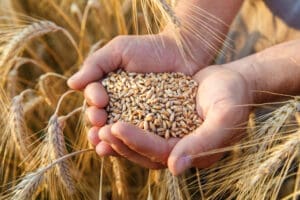Township bakeries across South Africa are buckling under intense financial pressure as the cost of wheat and flour surges, threatening jobs, small businesses, and food security in low-income communities.
Global wheat prices have climbed sharply over the past two months, driven by disrupted shipping routes in the Red Sea and extreme weather events that have devastated harvests in major wheat-producing nations like Russia and Ukraine.
According to data from the South African Grain Information Service, the local wheat price has jumped by 18% since July, forcing mills to raise flour prices and leaving township bakeries struggling to stay afloat. Bread, a staple in most South African households, has become more expensive to produce, but bakery owners say they cannot simply pass these costs on to their customers, many of whom already live on tight budgets.
Lindiwe Mahlangu, owner of Sweet Crust Bakery in Tembisa, Gauteng, the situation is dire. Mahlangu started her bakery five years ago with three employees, supplying bread and vetkoek to nearby spaza shops and schools. Today, she has had to cut production by 30% and lay off two workers.
“Flour is now so expensive that every batch I bake eats into my profits,” Mahlangu said. “If I raise my prices, my customers will just buy from the big supermarkets, but if I do not, I will be bankrupt by Christmas. It is heartbreaking because this bakery is not just my dream, it feeds my family and provides jobs for others.”
The ripple effects extend beyond bakeries to township economies. Spaza shop owners and informal street vendors rely heavily on these local bakers for affordable, fresh bread. As production drops, their businesses also suffer. This raises concerns about food security, particularly in areas where bread is a staple and unemployment is high.
South Africa produces only about 50% of the wheat it consumes, importing the rest from countries like Russia, Poland, and Germany. The Department of Agriculture, Land Reform and Rural Development (DALRRD) told Vutivi Business News that global market disruptions are having a direct impact on local prices.
While some small-scale wheat farmers exist in provinces like the Free State and Western Cape, they face challenges in meeting the standards required by large mills and bakeries. High input costs, limited access to irrigation, and a lack of modern equipment prevent them from scaling up production to meet local demand.
Kagiso Maseko, a small wheat farmer from Bethlehem in the Free State, explained the gap. “We grow good wheat, but getting it to market is tough,” he said. “The big buyers want certain quality grades and consistent supply, which small farmers like us cannot always provide without support. If there were proper cooperatives or government-backed programmes, we could feed our own bakeries instead of relying on imports.”
Industry experts believe cooperative bulk-buying groups could help small bakeries access flour at lower prices, while targeted subsidies could stabilise bread costs for consumers. However, these interventions remain absent.
Mahlangu worries that without urgent action, many township bakeries will close their doors for good before the festive season.
“People think bread will always be there, but they don’t see how close we are to collapse,” she said. “When small bakeries disappear, it’s not just about bread, it’s about jobs, dignity, and keeping food affordable for our communities.”































































